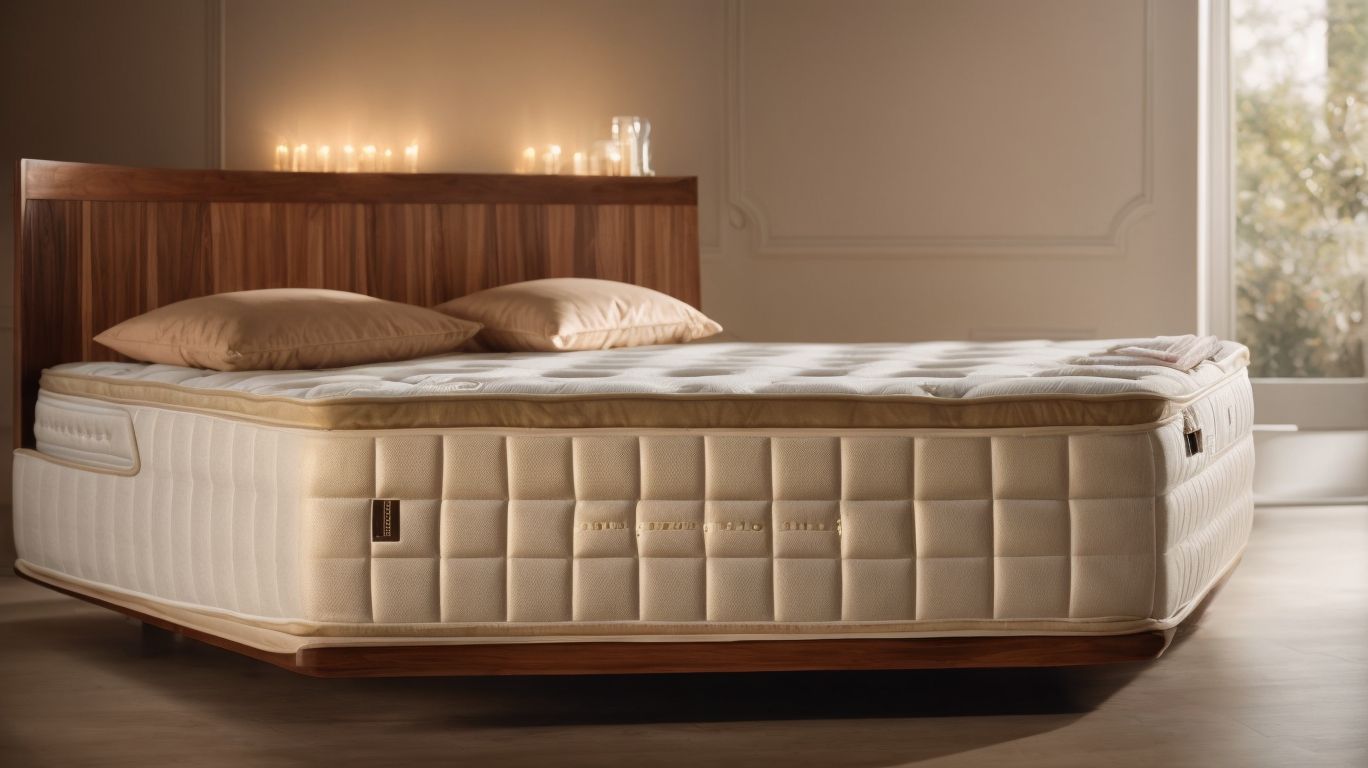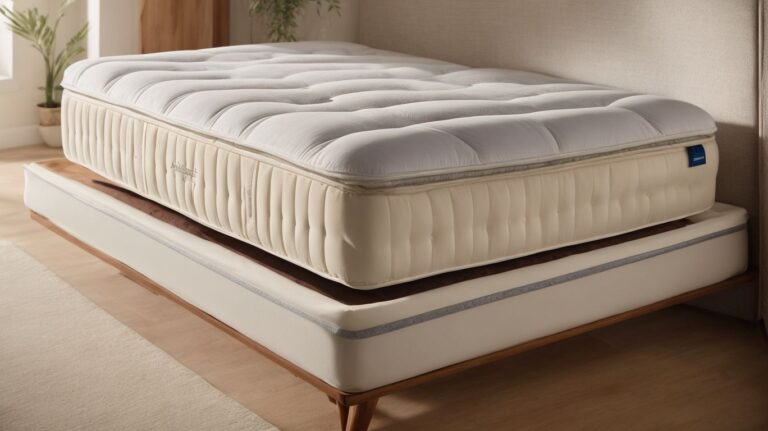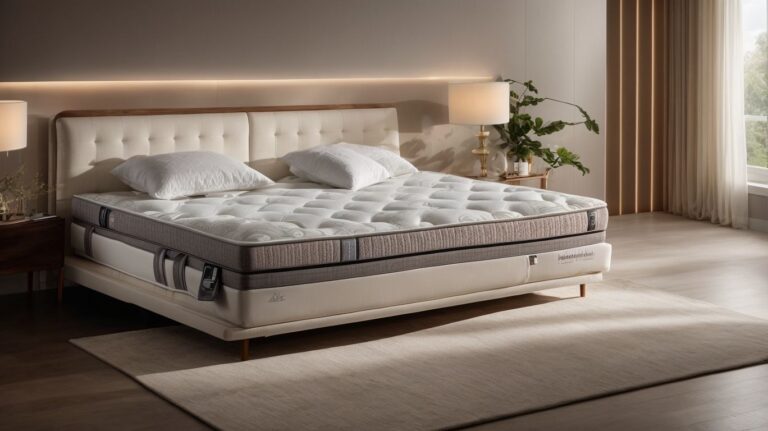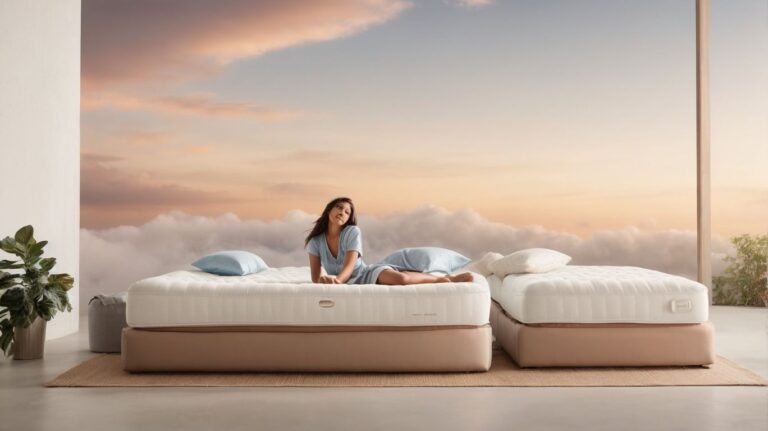- How To Choose Brentwood Home Oceano Luxury Hybrid - October 22, 2023
- How To Choose Amore Beds Hybrid - October 22, 2023
- How To Choose Stearns & Foster Lux Estate Cassatt - October 21, 2023
Sleep is vital for seniors’ well-being. It refreshes their bodies and boosts cognitive functions and emotional balance. Quality sleep is needed to stay healthy and prevent age-related health issues. As we age, our sleep patterns change, so a mattress that provides comfort and support is essential.
Memory foam mattresses are great for seniors. They fit the body shape, reducing pressure points and improving blood circulation. They also absorb movement, making them ideal for couples.
Spinal alignment is important too. Degeneration of discs and joints can lead to back problems. A mattress with enough support stops the spine from sagging or curving at night.
Temperature regulation is another factor for good sleep. Older people often have body heat fluctuations during the night. Mattresses with cooling gel or breathable materials maintain body temperature better.
Motion transfer must also be minimized. As we age, we are more likely to wake up from disturbances like partner movements or noise. A mattress with motion isolation properties prevents these disturbances, allowing uninterrupted sleep.
Margaret is an elderly woman who knows the importance of a quality mattress on her sleep routine. She was suffering from chronic back pain until she bought an orthopedic memory foam mattress for seniors. Since then, Margaret has seen huge improvements in her sleep quality and overall well-being.
Factors to consider when choosing a mattress for seniors
Mrs. Johnson was an 80-year-old lady with back pain from her old mattress. She then got an orthopedic mattress designed for seniors. It improved her sleep quality and gave her relief!
As we age, the right mattress is key. Consider these details when choosing:
- Support: Medium firmness for joint and muscle aid.
- Comfort: Memory foam or latex for cushioning.
- Motion Transfer: Reduced if you have a partner who tosses and turns.
- Temperature Reg.: Cooling technologies or material to promote airflow.
- Edge Support: Reinforced edges to assist with getting in and out of bed.
Plus, think about medical conditions and mattress size and height needs. This way, you can pick one that helps sleep and well-being.
Best mattress options for seniors
When it comes to mattresses for seniors, there are a few key things to think about. Such as:
- Supportive Mattress: It’s important to choose one that relieves pressure points and provides proper spinal alignment.
- Comfortable Firmness: Seniors may prefer a firmer or softer mattress depending on their needs.
- Temperature Regulation: Pick one with cooling properties to prevent overheating.
Motion isolation is also worth thinking about, to minimize disturbance from movement.
When selecting a mattress, look into individual preferences and any health concerns. Consulting with a healthcare professional or sleep specialist can be helpful.
Did you know that mattresses were first used in ancient Egypt? They were made of reeds, leaves and other natural materials. Later, padding and cushioning materials such as wool, feathers and horsehair were introduced. Now, with advances in technology and material science, there are many options designed to suit the needs of different age groups. So, seniors can rest assured knowing that there’s a perfect mattress for them.
Benefits of each mattress type
Benefits of a mattress type can hugely improve the sleep of seniors. Picking the right mattress can bring relief from pain and give the needed support for a good night’s sleep.
- Memory Foam: Shapes to the body and gives great pressure relief, reducing joint pain.
- Innerspring: Has a strong coil system for firmness and supports spine alignment.
- Latex: Natural properties, hypoallergenic and dust mite resistant, making it healthier.
- Hybrid: Combines memory foam and innerspring for support and comfy shape.
- Pillow Top: Cushioned top layer gives extra softness, perfect for chronic pain or arthritis.
- Airbeds: Adjustable air chambers let you customize firmness levels for more comfort.
For seniors, there are specific considerations when selecting a mattress. Things like temperature regulation, motion control, edge support and more might be important.
To further help improve sleep quality, here are some tips:
- Change and rotate the mattress regularly.
- Use mattress protectors to prevent damage.
- Lastly, get a supportive pillow to align the spine well.
By knowing the advantages of each mattress type and following these tips, seniors can enjoy better sleep during their golden years.
Tips for selecting the right mattress for seniors
When selecting a mattress for seniors, there are a few factors to think about. Here are some tips to help you:
- Comfort is key: Memory foam mattresses are great for seniors as they contour to the body and reduce pressure points.
- Temperature control: Seniors have trouble regulating their body temperature, so look for a mattress that offers good airflow and temperature control.
- Motion isolation: Joint pain or a partner who tosses and turns? A mattress that isolates motion can help.
- Firmness level: Seniors need support without being too hard on their joints. A medium-firm mattress is often the best option.
Plus, consider individual preferences and health conditions. With this, you can find a mattress that helps them sleep better.
For something unique, think about edge support, hypoallergenic materials, and trial periods or return policies.
Here’s an inspiring story: My grandmother suffered from insomnia and back pain due to her old mattress. After researching, she chose a memory foam mattress for seniors. The change was amazing – she slept better and felt less pain. It was amazing to see how this small change improved her life.
Conclusion: The importance of choosing the best mattress for seniors’ optimal sleep and well-being
To guarantee seniors optimal sleep and well-being, picking the right mattress is essential. A supportive and comfy mattress can boost their sleep quality, ease body aches, and support healthier spinal alignment.
When choosing a mattress for seniors, quality should be a priority. Choose reputable brands that provide durable materials and reliable support. Memory foam mattresses are recommended as they fit the body’s shape and offer great pressure relief.
Also, consider the mattress firmness suitable for seniors. Medium-firm mattresses usually balance comfort and support, suiting various body types and sleeping positions. However, it is important to consult with a healthcare professional or orthopedist before making a final decision.
In addition, motion isolation is essential. Seniors may be more sensitive to their partner’s movements during sleep. Look for mattresses with great motion isolation properties, such as pocketed coil or memory foam mattresses.
Temperature regulation is also important for a restful sleep. Aging bodies may have difficulty regulating body temperature, causing discomfort. Get mattresses with cooling properties, such as gel-infused memory foam or breathable materials like latex.
Apart from selecting the right mattress, other factors are important for seniors’ sleep. Stick to a consistent bedtime routine, create a quiet and dark bedroom environment, and limit caffeine intake before bedtime.
Finally, the right mattress can make a huge difference to seniors’ sleep quality. By thinking about factors such as quality, firmness, motion isolation, and temperature regulation, seniors can get the most out of their sleep and improve overall wellness.
Make sure your seniors enjoy their golden years with the best mattress tailored to their needs.
Frequently Asked Questions
FAQ 1: What should I consider when choosing a mattress for seniors?
When choosing a mattress for seniors, there are a few factors to consider. Firstly, opt for a mattress with good support to ensure proper spinal alignment. Look for mattresses that offer pressure relief for sensitive areas such as hips, shoulders, and joints. Additionally, consider the firmness level based on personal preference and any specific health concerns.
FAQ 2: Which mattress type is best for elderly individuals?
There is no one-size-fits-all answer to this question as it depends on individual preferences and needs. However, memory foam mattresses are often recommended for seniors as they provide excellent pressure relief and body contouring. Latex mattresses are also a good option due to their durability and natural hypoallergenic properties.
FAQ 3: Can an adjustable bed be beneficial for seniors?
Yes, adjustable beds can offer numerous benefits for seniors. They allow for customization of sleeping positions, which can be helpful for individuals with medical conditions such as acid reflux, sleep apnea, or back pain. Moreover, adjustable beds assist in getting in and out of bed, reducing strain on joints and improving overall comfort.
FAQ 4: How often should a mattress be replaced for seniors?
Generally, mattresses should be replaced every 7-10 years. However, for seniors, it is crucial to assess the condition of the mattress regularly due to changes in comfort needs and potential health issues. If the mattress shows signs of sagging, lack of support, or causes discomfort, it may be time to consider a replacement.
FAQ 5: Are there any mattresses specifically designed for seniors?
Yes, there are mattresses designed with the specific needs of seniors in mind. These mattresses often feature advanced support systems, pressure-relieving foams, and temperature regulation. Look for mattresses labeled as “senior-friendly” or those that address common concerns such as back pain, arthritis, or mobility issues.
FAQ 6: Is it important to try out a mattress before purchasing?
Trying out a mattress before purchasing is highly recommended, especially for seniors. Testing different mattresses allows you to assess the comfort, support, and overall feel. Many mattress stores offer trial periods or return policies, so take advantage of these options to ensure you select the best mattress for your individual sleep needs.







